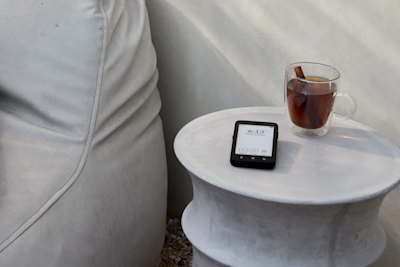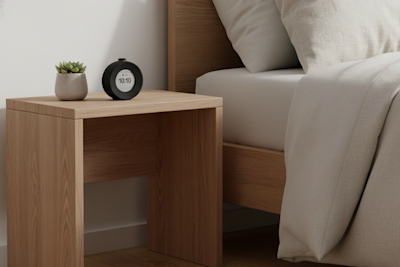
How technology has upended the human experience
Technology & the Human Experience
“Social connection is such a basic feature of human experience that when we are deprived of it, we suffer.” ~Leonard Mlodinow
Without a doubt, the most important technological innovation of my lifetime has been the Internet. It has impacted virtually every aspect of our daily lives, transformed the social order throughout the globe and changed the way we experience the world around us. While much of it has been good (who doesn’t enjoy having the compiled knowledge of the world in their pocket), there is an increasing recognition of potential downsides and risks. For many, the Internet has replaced engagement with the real, physical world, almost completely. What happens when programmable moods and emotions replace real ones?
Over the last 25 years or so, we have slowly and increasingly become tethered to technology. We are constantly connected, whether it’s to the oversized cellphone in our pocket or to the oversized tablet in our bag. As we make our way through each day, we jump from phone to laptop to tablet, scrolling, streaming (sometimes simultaneously), and talking to Alexa in the cylinder located on our kitchen counter. Some of us even sleep with health smartwatches while THE CLOUD collects some of the most sensitive and personal data we have.
Mudita Kompakt is designed for simplicity, privacy, and intentional living.
Our Time Online
A 2018 Nielsen study[1] found that adults spent, on average, a staggering 11 hours a day interacting with digital technology. Currently (in no small, part due to Covid), that number is probably a lot higher. These days, it seems, as we are living more of our lives entirely online, our relationship with technology has become even more intertwined. From Zoom/GoogleMeet conferences, while working remotely, to Skype calls with loved ones, to shopping online, even for daily necessities. Cracking jokes with our colleagues, using emojis on Slack, has replaced the office water cooler as the place of spontaneous human interactions. FaceTime Wine Night has replaced a fundamental aspect of our human experience- the social gathering. Although it may be hard to admit, because digital technology feels like a lifesaver right now, IT IS STILL a major relationship killer. When you stare at a screen for the better part of your waking existence, rather than engaging with the people around you, you’re undoubtedly damaging an essential facet of human interconnection. Today, with the ubiquity of technology all around us, meaningful interactions between people are frequently disrupted or shunned altogether. But how does this constant connection and instant access to email, messaging, social media and entertainment impact our health and well-being?
Relationships and the Human Experience
Human beings (on the whole) are social creatures. We crave contact with other humans. We evolved from tribes, learning to rely on cues found in physical and social interaction, such as eye contact, facial expressions and body language, in order to learn about ourselves and the people we interact with. According to a 2010 NIH Health Report[2], we need human interaction for our own health and well-being, not only for support and entertainment. The report cited compelling evidence that lack of physical human contact or low-quality social ties are linked with a plethora of adverse medical conditions such as autoimmune disorders, high blood pressure, cardiovascular disease, including repeat heart attacks, and even cancer. A 2016 Rally Health[3] report, also stated that too much screen time has been linked to significant physical health & well-being repercussions such as poor vision, disturbed sleep, in addition to negatively impacting our weight and overall health.
Our constant use of technology has not only become a very real threat to our existence, but it also poses a serious danger to a very essential component of our humanity- meaningful relationships and human interaction. But I guess we didn’t need scientific research to acknowledge the critical significance of making and maintaining social connections.
Meaningful relationships and real social interaction are at the core of personal growth and trust. They create support networks, which allow us to cope with major life changes, and help with anxiety and stress. Unfortunately, as relationships in the digital age become more and more transactional, our human connections have become even more transient and superficial.
Mobile technology has exacerbated these traits and created a culture of impatience and instant gratification. Social media compounds these behaviors, whilst raising a generation on an immediate feedback loop which can lead to us feeling devalued. Spending more and more time on social networks, devoid of real, meaningful human connections, can lead to depression, anxiety and apathy[4].
Priority vs. Option
Just think how easily you can bypass human interactions while running your daily errands, whether it’s ordering take-out, buying the latest fashions, stocking up on groceries and household necessities, or planning your next get-together. Virtually, any of these can be done online, without much human contact. It’s just as easy to sidestep human interaction when making new friends and meeting potential life partners.
We used to meet people through proximity, taking our time, getting to know people, forming deep, intimate relationships. However, online dating sites, such as Match.com and dating apps, such as Tinder, Bumble or Plenty of Fish have somehow turned people with real feelings and emotions into emotionally detached commodities. Clearly, technology missed the memo that deep down, humans want to be treated as a priority instead of an option. Don’t get me wrong, online dating can be a great way for singles to meet potential partners outside of their social networks. However, more often than not, due to the sheer abundance of possible partners, users become addicted to the chase, and are less inclined to treat any one person as a priority. There’s always the thought that something better is out there. So why settle?
And when you do finally meet someone, with whom you’d like to stand still for a little while…it, then, becomes a game of who can care less. Although emotional connectivity is an inherent part of being human, it appears as if, the less real human contact we have, the more desensitized we are to human emotions. It becomes a vicious cycle.
Breaking the Cycle
We need to be able to break that cycle. But how? By putting away the mobile device and making a conscious effort to prioritize real human interaction in both our private and professional lives. We need to apply mindfulness and safely manage our way through this hyper-connected, digital lifestyle, without losing our focus and feeling like we’re missing out.
Mudita Kompakt and Mindful Tech Use
One way to achieve this is by choosing devices designed with digital well-being in mind. Our newest device, Mudita Kompakt, for instance, offers a minimalist approach to mobile technology. It emphasizes essential features without the overwhelming complexities of modern smartphones, promoting a balanced lifestyle. Its custom operating system ensures your data and privacy are safeguarded, reducing screen time and minimizing distractions. By opting for Mudita Kompakt, you can reclaim your time and focus, fostering meaningful interpersonal interactions.
READ: Why Mudita Kompakt Might Be the Best Minimalist Phone of 2025
Just like with any product or service - moderation is key. Although our work and personal lives depend on connectivity, and constantly revolve around the Internet, we can still make the choice to use it sensibly, in a purpose-driven manner. It’s easy to come home at the end of the day, turn on the TV/Netflix and waste the evening simultaneously scrolling through your social media and streaming favorite shows. Don’t let the Internet unconsciously siphon time which could be better spent on more meaningful activities. Make the choice to disengage from the screen in favor of quality time spent with friends and loved ones, experiencing meaningful interpersonal interactions. Use social media intentionally, as a tool, not as a crutch.
When it comes to technology it’s important you keep a balanced approach. Smartphones are not inherently evil; however, they should be acknowledged as the disrupters that they are. Put technology in its place. Consider putting phones away when in the company of others. Make it a point to consider the use of a mobile device during meals, meeting, conversations, or in the middle of family get-together a major faux pas. The internet is simply a tool, and how it impacts our lives depends entirely on how we use it. Or for that matter, on how we don’t use it.
Related stories

What is Blue Monday & How to Deal with Seasonal Blues
Feeling the winter blues? Discover how to overcome seasonal sadness with mindfulness, better sleep, limited screen time, and meaningful connections.

Why Kompakt is a Different Kind of Upgrade for the New Year
A different kind of upgrade for the new year. Discover how Mudita Kompakt, a minimalist phone, helps reduce digital overload & restore focus, balance & clarity.

Is 8 hours still the golden rule for sleep?
Eight hours is the recommended average, not a rule. Discover why sleep quality, consistency, and your natural rhythm matter more than hitting a number.
If you'd like to receive the best stories from our blog, keep up to date with our progress and get notified about our product releases and special discounts.